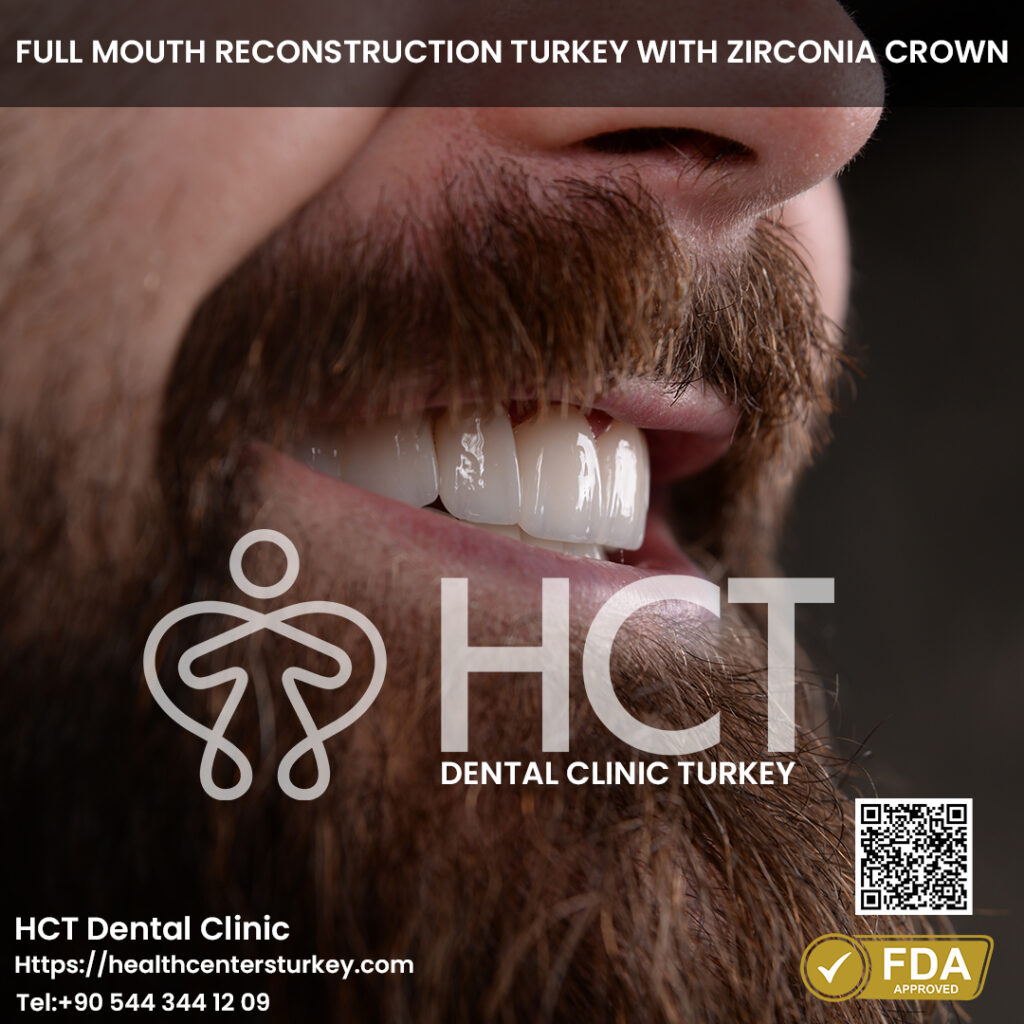Create the Perfect Smile with Implants and Veneers
Personalized Oral Health Services in Turkey
Dental implants have turn out to be a preferred answer for these seeking to replace missing teeth. Understanding how these implants can have an effect on adjacent teeth is crucial for anyone contemplating this procedure, in addition to for dentists and specialists concerned in dental care.

One significant side is that dental implants are designed to be anchored into the jawbone, which suggests they are impartial of adjacent teeth. Unlike dental bridges, which frequently require the alteration of neighboring teeth, implants can fill the hole without compromising the health or structure of those surrounding teeth.
This independence helps preserve the integrity of adjacent teeth. When a tooth is lost, there can be a natural tendency for neighboring teeth to tilt or shift into the empty area. Such movement can result in misalignment, which may have an effect on chew and overall oral health. By inserting an implant, you effectively prevent this potential shift, selling better alignment in the long run.
Showcasing the Best Dental Solutions of Turkey for Beautiful Smiles
Additionally, dental implants help keep bone density in the jaw. A natural tooth root supplies stimulation to the encircling bone, keeping it wholesome and robust. When a tooth is missing, the bone can begin to deteriorate due to lack of stimulation. With a dental implant mimicking a natural root, bone loss could be minimized, which indirectly advantages adjacent teeth by preserving the overall structure of the dental arch.
While dental implants are advantageous, improper placement can influence neighboring teeth. If an implant is positioned too close to a different tooth, it may exert undue strain on that tooth, resulting in discomfort or potential damage. Proper planning and imaging strategies are essential for avoiding such points.
A Complete Guide to Dental Treatment Abroad in Turkey
Moreover, maintaining good oral hygiene is essential after receiving an implant. If not properly cleaned, surrounding teeth may turn into susceptible to dental points such as decay or gum disease. This underscores the significance of diligent oral care following the procedure to ensure each implants and adjacent teeth stay healthy.
Regular dental check-ups are additionally vital for monitoring the health of surrounding teeth. Dentists can establish any shifts or potential problems early, allowing for well timed interventions. This proactive method ensures that each the implant and adjacent teeth can coexist with out complications.
Expert Dental Teams Offering Veneers and More throughout Turkey
Another consideration is the influence of implants on bite pressure. When a single tooth is missing, the load of chewing may shift to adjacent teeth, probably resulting in wear or pressure. Implants restore proper chew dynamics by redistributing forces within the mouth, which can shield surrounding teeth from undue stress.
Some sufferers could increase issues about the appearance of dental implants. Well-placed implants can blend seamlessly with present teeth, bettering overall aesthetics. In contrast, failing to exchange a missing tooth can result in aesthetic issues, together with collapsing of facial structure and adjustments in smile dynamics.
It's also worth discussing the psychological elements of dental health. Experiencing tooth loss can adversely affect one’s shallowness and willingness to engage socially. By restoring your smile with implants, you'll have the ability to positively affect not only your oral health but also your emotional well-being.
Long-term success of dental implants often hinges on numerous elements, together with the affected person's health, maintenance habits, and the quality of the initial procedure. If adjacent teeth are healthy and properly cared for, the likelihood is that they may proceed to thrive alongside the implants.
Transform Your Smile with Dental Veneers in Turkey
In conclusion, dental implants play a view vital function in not simply restoring particular person smiles, however in preserving the health and structure of adjacent teeth. By preventing shifting, maintaining bone density, and redistributing bite forces, implants can ensure that surrounding teeth stay in optimum condition. Proper placement, hygiene, and common dental visits can additional improve the advantages of dental implants, resulting in a more healthy, extra assured smile for years to come back.
- Dental implants may help preserve the alignment of adjacent teeth by offering a secure anchor, preventing adjacent teeth from shifting into the gap left by a missing tooth.
- The presence of an implant might stimulate bone growth in the jaw, helping to preserve the general structure and integrity of the adjacent teeth.
- Unlike conventional bridges, implants don't require alteration of surrounding teeth, thus preserving their strength and anatomy.
- Implants can improve the distribution of chew forces evenly across the dental arch, lowering the stress on neighboring teeth during chewing.
- A well-integrated dental implant can decrease the risk of bone loss in the area surrounding adjacent teeth, contributing to their long-term health and stability.
- The aesthetics of adjacent teeth could be improved due to the help offered by implants, which may lead to better total beauty outcomes.
- With proper placement, dental implants can prevent gum recession around adjacent teeth by maintaining sufficient dental structure.
- Implants might help mitigate the risks of periodontal disease in nearby teeth by promoting wholesome gum tissue and offering a washer-friendly surface.
- Long-term success of dental implants can result in improved oral hygiene routines, which in flip benefits the health of surrounding teeth.
- The improved functional ability of an implant can encourage sufferers to chew more effectively, thus rising saliva manufacturing and aiding in the protection of adjacent dental tissues.undefinedHow do dental implants affect adjacent teeth?
What are dental implants and the way do they interact with adjacent teeth?undefinedDental implants are synthetic tooth roots that are surgically positioned into the jawbone. They provide a steady foundation for replacement teeth while guaranteeing minimal disruption to adjacent teeth, preserving their integrity and alignment. Tips for Choosing a Dentist in Antalya.
Enhance Your Oral Health Experience with Skilled Professionals in Turkey
Can dental implants cause problems for nearby natural teeth?undefinedGenerally, dental implants don't harm adjacent natural teeth. However, if the implant is not positioned appropriately or if there’s inadequate oral hygiene, it could result in complications corresponding to adjacent Clicking Here tooth decay or gum disease.

Will getting a dental implant change the finest way my adjacent teeth feel?undefinedMost sufferers report no change within the sensation of adjacent teeth after implant placement. However, it might take some time to adjust to the presence of the implant, similar to how one may adapt to other dental restorations.
Can dental implants help protect the health of adjacent teeth?undefinedYes, dental implants may help preserve the health of adjacent teeth by stopping bone loss that can occur after tooth loss. This preservation supports the alignment of nearby teeth, lowering the chance of shifting or misalignment.
Increase Your Self-Esteem with Quality Dental Care
Do I want to switch adjacent teeth when getting an implant?undefinedTypically, adjacent teeth do not need alteration when placing an implant. This is amongst the benefits of dental implants over traditional bridges, which often require reshaping adjacent teeth for assist.
How does the therapeutic means of an implant affect nearby teeth?undefinedThe healing process entails osseointegration, where the implant fuses with the jawbone. During this time, adjacent teeth remain unaffected and retain their function, although it’s essential to follow post-operative care recommendations. Unlock the Potential of Dental Packages in Turkey.
Transform Your Oral Aesthetics using State-of-the-Art Dental Solutions
Can dental implants lead to bone loss around adjacent teeth?undefinedIf dental implants are positioned properly and cared for adequately, they should not result in bone loss around adjacent teeth. In fact, they may help stimulate bone progress, combating the natural bone loss that often follows tooth extraction.
What precautions ought to I take to protect adjacent teeth after getting an implant?undefinedRoutine dental hygiene, including brushing and flossing, together with regular dental check-ups, is essential. Avoiding exhausting foods and following your dentist’s aftercare directions will also defend both the implant and adjacent teeth.
Is it common for adjacent teeth to shift after an implant is placed?undefinedIt's not typical for adjacent teeth to shift after an implant placement, particularly when the implant is placed accurately and maintained properly. If there’s any motion, it might be due to different underlying issues that must be evaluated by a dental professional.